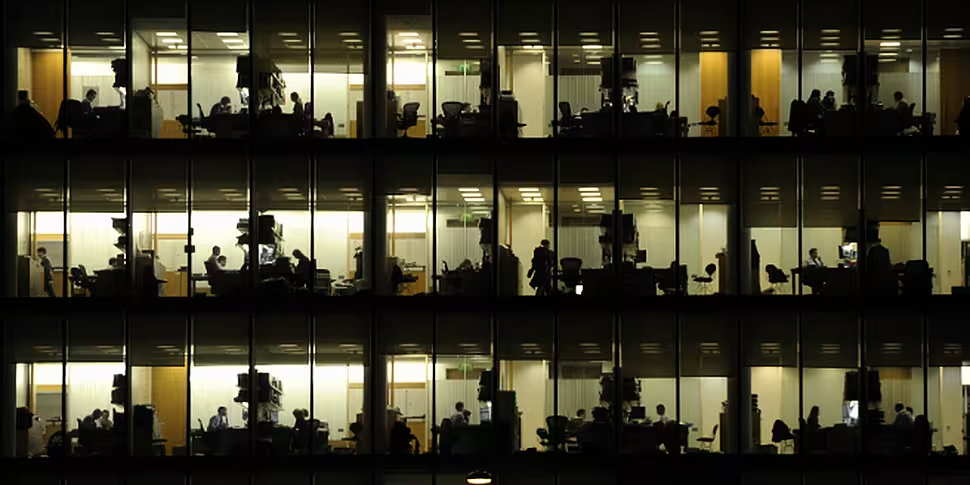Freshly-installed Finance Minister Pascal Donohoe indicated this week that middle-income earners would enjoy income tax cuts in Budget 2018.
Meanwhile, his department's new junior minister Michael D'Arcy is calling for the entry point for the higher rate of tax to be bumped up to €40,000.
A populist but unrealistic bit of mouth service to gain votes?
Economist Jim Power doesn't think so. In fact, he firmly believes raising the threshold should be the sole focus of this Government's tax reform.
Joining The Pat Kenny Show, Power made the case for a €10,000 hike that would mean the average Irish worker would only be paying the 20% PAYE rate.
"I actually think it's an incredibly sensible policy approach," he said. "Once you go over €33,800 in this country – and if you consider that is well below the average industrial wage of €37,000 – you end up paying a marginal rate of tax of €49.5%. That is the PAYE rate of 40% and then PRSI, USC, etc..."

"So it's an incredibly low level at which to enter what we would call 'The 50s Club' or very close to [it].
"The tax system creates a major disincentive for people to better themselves at work. To earn more money, to work more overtime etc. Because once they go over that threshold, suddenly they're tax burden increases significantly.
To me, that is the biggest problem with the Irish tax system..."
Sure to appeal to the workforce at large, but would the Revenue be onboard? While it would be something of a drain on the State's resources initially, Power outlined how a gradual approach could be positive on both sides.
"The cost of this is estimated by Revenue at €178 million per €1,000 you lift the threshold," he continued. "So it is an expensive measure but my argument would be that it should be the sole focus of tax reform from here on.
"We shouldn't be taking people out of the USC, we shouldn't be fooling around with other aspects of the tax system.
"If you were to lift this by €10,000 – from €33,800 to €43,800 – it would cost €3 billion over a five year period and that €3bn is definitely available within the so-called 'fiscal space' that we have at our disposal."

One happy side effect of increasing the threshold would be a stimulation of consumer spending.
"The extra money we as taxpayers get into our pocket because of these changes, we would end up spending most of that.
"It would find its way back into the economy... back into the tax system. So it would become partly self-financing over the years.
"But I think even more than that, the important thing here is that it would significantly improve the incentive here to work hard, to enjoy social mobility and so on."
Conversely, Power criticised the "scattergun approach" to tax changes we generally see. Pointing to the wide range of small tweaks offered in Budget 2017, he said:
"We all woke up the following morning feeling slightly better off; nobody significantly better off."

Conversely, a threshold change would have a "meaningful impact" on people.
It would, however, have to be a five-year project.
"It would not be affordable in one fell swoop, there's no doubt about that...
"If you, as a government, lay down the marker – 'listen, this is what we're going to do over the next five years' – it creates certainty in the tax system and removes all of this very interventionist approach we see to taxation that introduced in every budget, every year."
Power shot down the suggestion that loading the shortfall on higher earners would be reasonable.

"You're already there," he argued. "If you're earning €100,000 plus, you're paying a marginal rate of somewhere close to 53%. If you're self-employed, it's 55%.
"So the reality of our very progressive tax system is that those people who earn most in this country by far pay most in taxation.
"During the whole water charge dispute, how often have we heard people say that we shouldn't have water charges, we should pay for it with a progressive tax system – as if we don't have a progressive tax system.
"We have one of the most progressive tax systems in the world and to suggest we don't is utter rubbish."
"How do we pay for this? Well, it would be paid for through the fiscal space."









